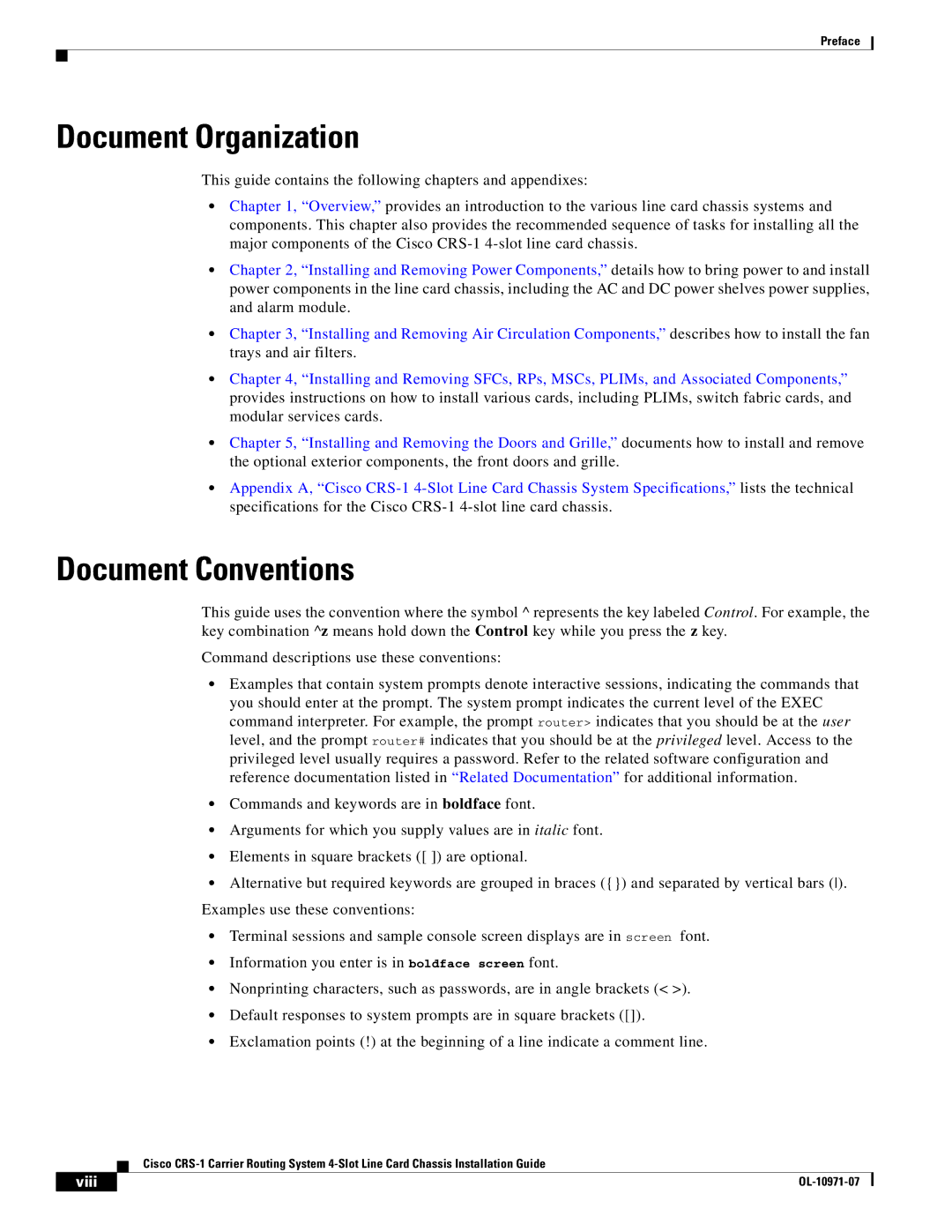
Preface
Document Organization
This guide contains the following chapters and appendixes:
•Chapter 1, “Overview,” provides an introduction to the various line card chassis systems and components. This chapter also provides the recommended sequence of tasks for installing all the major components of the Cisco
•Chapter 2, “Installing and Removing Power Components,” details how to bring power to and install power components in the line card chassis, including the AC and DC power shelves power supplies, and alarm module.
•Chapter 3, “Installing and Removing Air Circulation Components,” describes how to install the fan trays and air filters.
•Chapter 4, “Installing and Removing SFCs, RPs, MSCs, PLIMs, and Associated Components,” provides instructions on how to install various cards, including PLIMs, switch fabric cards, and modular services cards.
•Chapter 5, “Installing and Removing the Doors and Grille,” documents how to install and remove the optional exterior components, the front doors and grille.
•Appendix A, “Cisco
Document Conventions
This guide uses the convention where the symbol ^ represents the key labeled Control. For example, the key combination ^z means hold down the Control key while you press the z key.
Command descriptions use these conventions:
•Examples that contain system prompts denote interactive sessions, indicating the commands that you should enter at the prompt. The system prompt indicates the current level of the EXEC command interpreter. For example, the prompt router> indicates that you should be at the user level, and the prompt router# indicates that you should be at the privileged level. Access to the privileged level usually requires a password. Refer to the related software configuration and reference documentation listed in “Related Documentation” for additional information.
•Commands and keywords are in boldface font.
•Arguments for which you supply values are in italic font.
•Elements in square brackets ([ ]) are optional.
•Alternative but required keywords are grouped in braces ({}) and separated by vertical bars (). Examples use these conventions:
•Terminal sessions and sample console screen displays are in screen font.
•Information you enter is in boldface screen font.
•Nonprinting characters, such as passwords, are in angle brackets (< >).
•Default responses to system prompts are in square brackets ([]).
•Exclamation points (!) at the beginning of a line indicate a comment line.
Cisco
| viii |
| |
|
|
